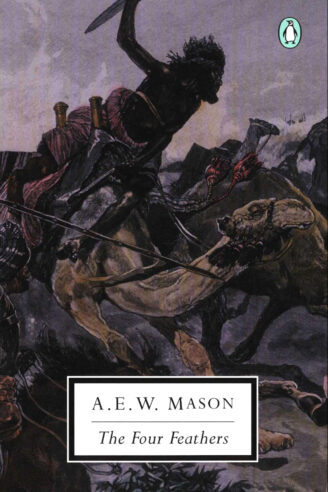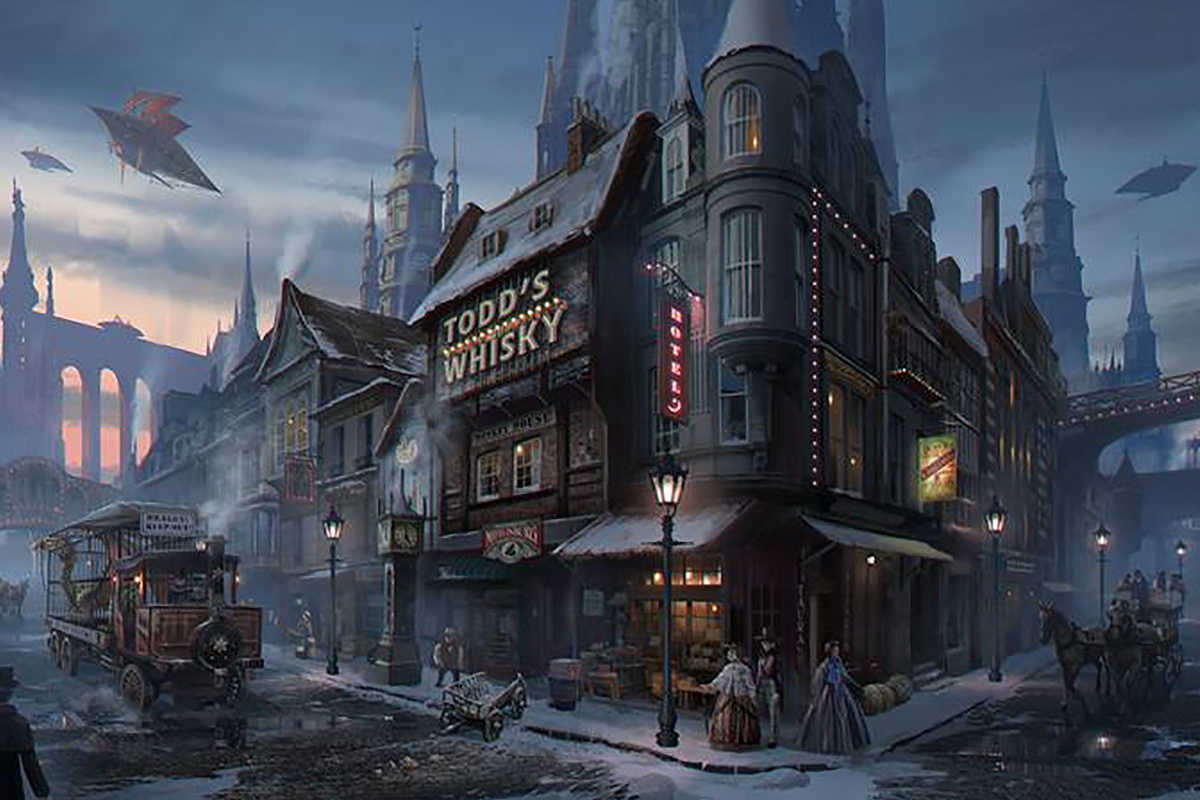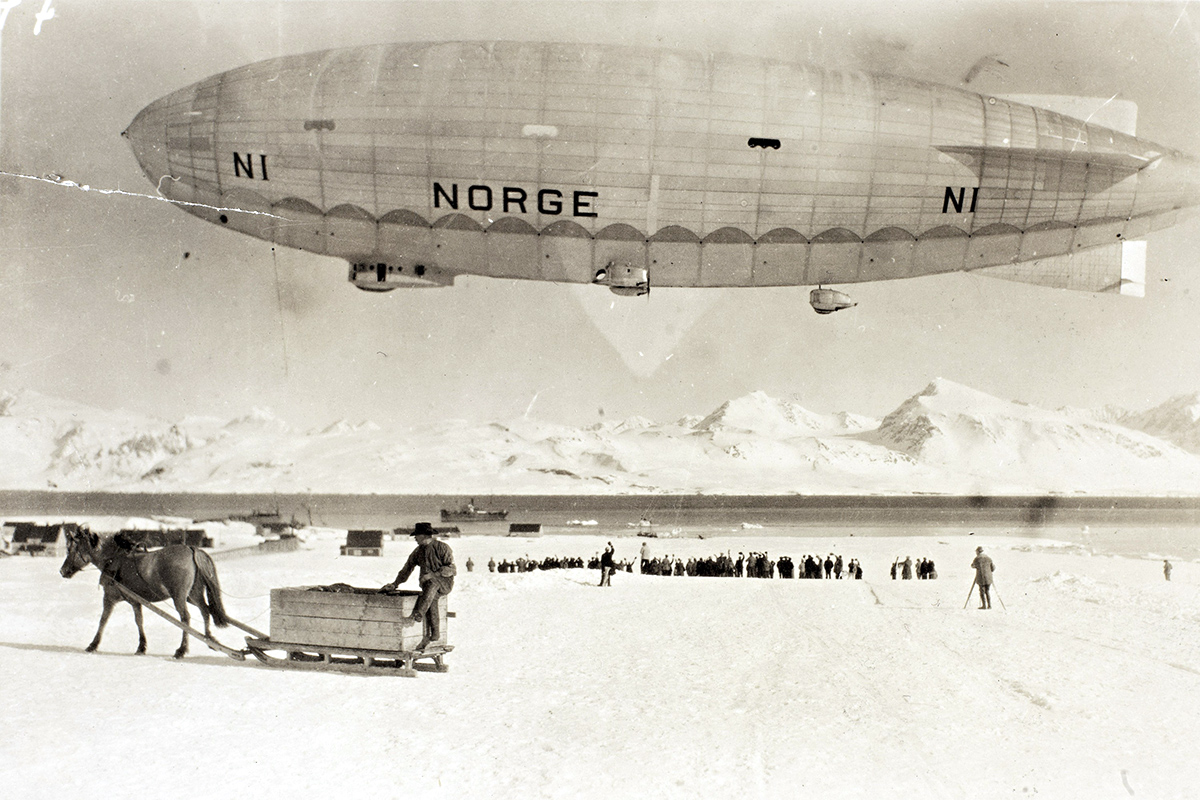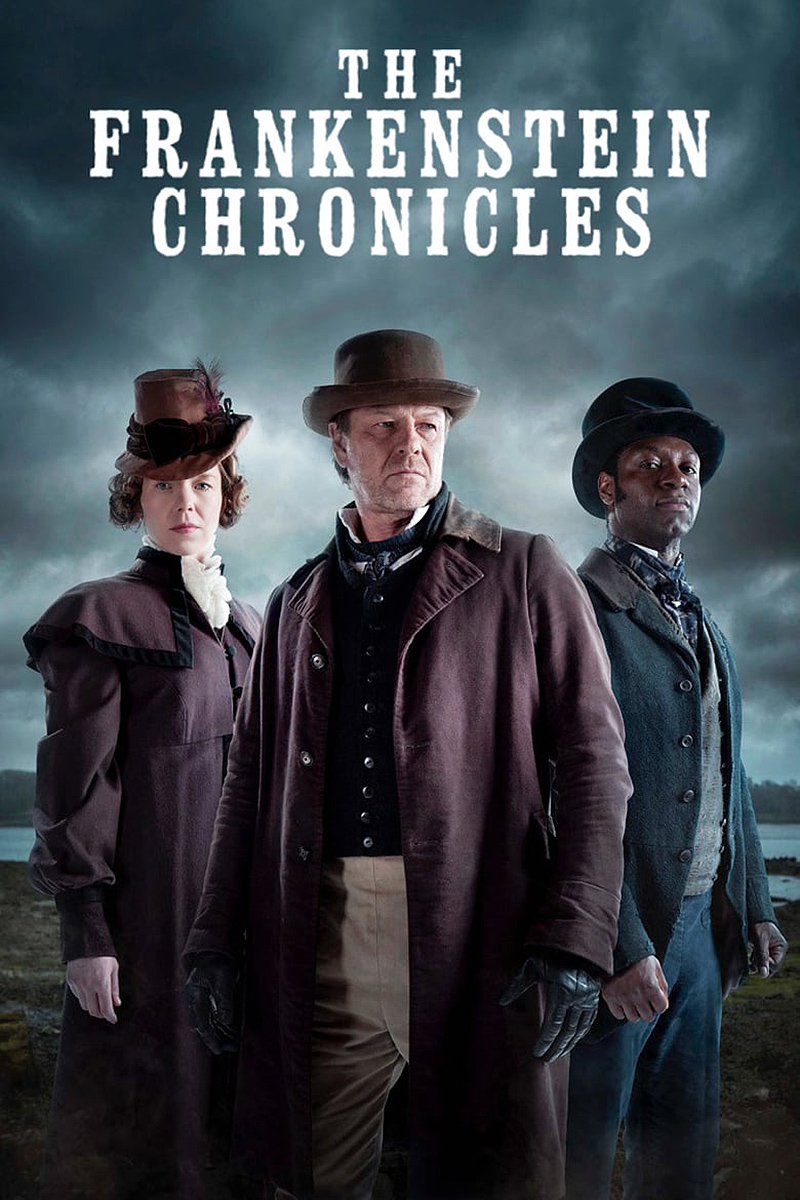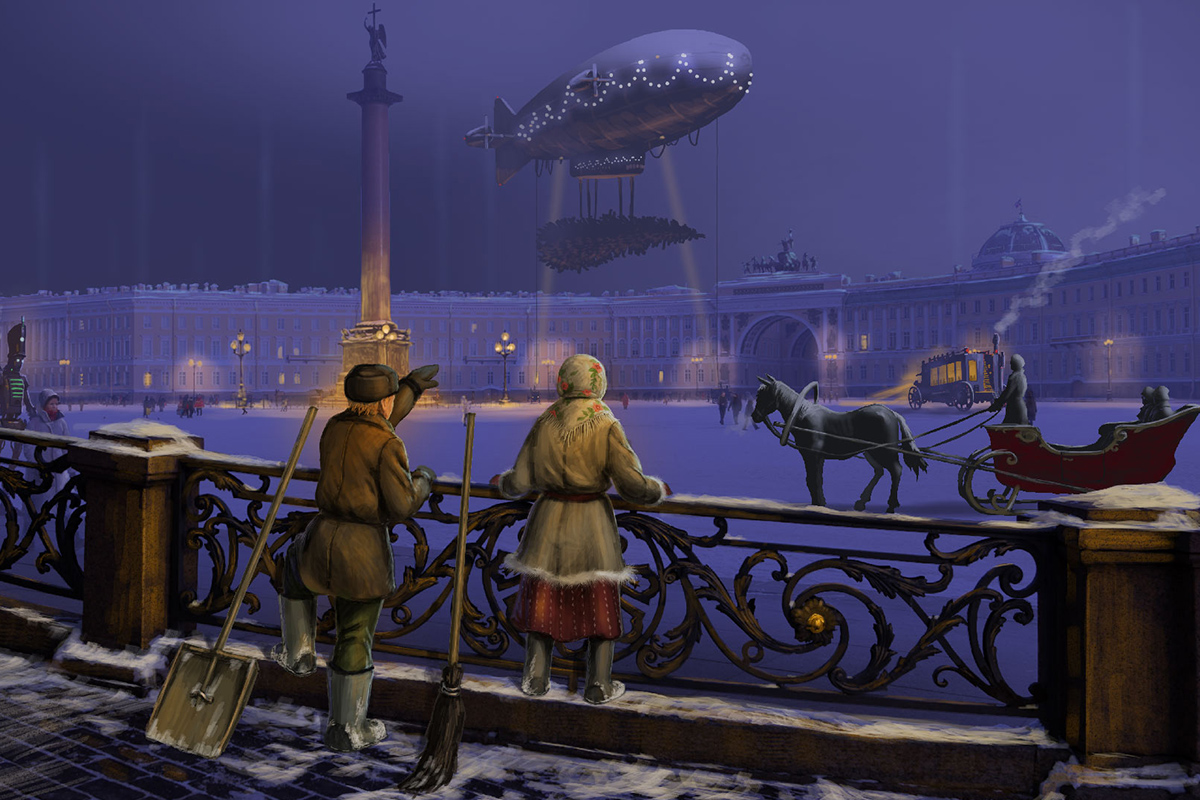The most known example of handing out white feathers to those accused of cowardice was during the First World War, when British men who didn’t enlist were handed the plumes by women who supported the war effort. The tradition, however, is older. It has its roots in the eighteenth century.
In 1902, A.E.W. Mason wrote his novel The Four Feathers about a man who does not want to fight but is made to by his compatriots. It is a novel about what war does to the unwilling and the nature of societal pressure.
Harry Feversham never wanted to be in the British Army. This is inconvenient for him, for he is from a military family. He serves unhappily for a time, then resigns his commission. Unfortunately for him, it is a day before the British Army is deployed to Sudan. Three of his friends send him a white feather each, and a fourth comes from his fiancée, who breaks off the engagement. To restore his honor, Harry disguises himself to go to Sudan to prove himself worthy.
For a book written in the early years of the twentieth century in Britain and set in Africa, you may reasonably expect it to be horribly racist. It is, actually, nowhere nearly as bad as it could have been. The Sudanese characters are in distinctly secondary roles, but they are not mewling supplicants. In a way that reminds me of the HBO miniseries The Pacific or the Israeli war film Kippur (review here), the enemy only shows up so much, for this is a story that is focused on the men in combat.
The Four Feathers is a damning indictment of a belligerent, warmongering culture. Britain did not create an empire upon which the sun never set by putting on tea parties. (And think about where they got their appetite for tea to begin with!) In this novel, men of a certain background and status are expected to fight in a savage war of peace for very little gain for themselves. Feversham is a good, decent man, who deserved so much better. He is made to do terrible things and suffer terrible things by his comrades and the women in his life. As so many war stories show, war destroys people, and Feversham is no exception.
Much of the book takes place among brutal combat in Sudan. Another large chunk takes place in England. The Four Feathers is, strangely, detached from its main character. This maintains a lot of the mystery that ends up making the book so compelling. It is a strange narrative choice, but one that builds tension and makes you want to read to the end.
This novel’s status as an adventure of its time works in its favor. Mason’s writing is not plodding in the way we expect literature from the period to be. His prose is brisk. This does, to a degree, undo what could have been the core message, for I suspect the readership for this type of story could not bear a dour ending.
The Four Feathers is one of the crowning achievements of the early twentieth century’s pulp novel genre, alongside greats like H.G. Wells and Jules Verne. It is simultaneously a cracking adventure yarn and a deep investigation in the soul of a soldier. It’s old, but never dull.

